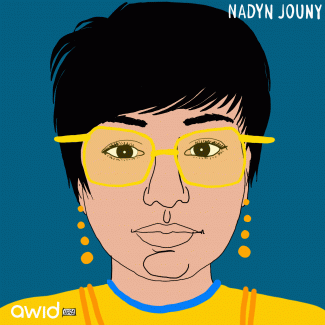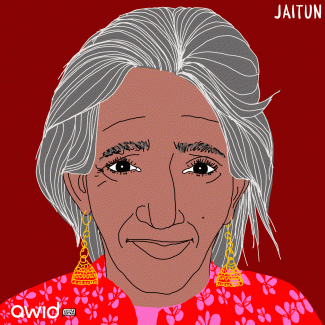The results of your research will also shape your advocacy – for example, your results will have revealed which sectors fund the most and which sectors you feel need donor education.
In this section
Build your advocacy strategy
In the “Frame your research” section of this toolkit we recommend that you plot out what goals you hope to accomplish with your research. These goals will allow you to build an advocacy strategy once your research is complete.
An advocacy strategy is a plan of distributing your research results in a way that allows you to accomplish your goals, falling under the broader goal of advocating with key sectors to make positive changes for resources for women’s rights organizing.
Using the goals defined in your research framing:
- List the potential groups of contacts who can be interested in your research results
- For each group, explain in one sentence how they can help you achieve your goal.
- For each group, mark what tone you are supposed to use to talk to them (formal professional, commentary casual, do they understand the field’s jargon?)
- List every media that can allow you to reach these audiences, in the proper tone (social media to build community feeling, press release for official announcement to a general audience, etc.)
From this list – as exhaustive as possible, chose which ones are the most efficient for achieve your goals. (See below for specific examples of audiences and advocacy methods)
Once you have a strategy, you can start the dissemination.
Back to top
Reach out to your network
To disseminate your results, reach out first to the contacts through whom you distributed your survey, as well as to all your survey and interview participants.
- First, take this opportunity to thank them for contributing to this research.
- Share with them the main survey results and analysis.
- Make it easy for them to disseminate your product through their networks by giving them samples of tweets, Facebook posts or even a short introduction that they could copy and paste on their website.
Do not forget to state clearly a contact person and ask for a confirmation once they have published it.
On top of making you able to track who disseminated your report, it will help build stronger relationships within your network.
Back to top
Adapt your strategy to the sector
As an example, we present below a list of sectors AWID engages in advocacy.
- Use this list as a point of departure to develop your own sector-specific advocacy plan.
- Create an objective for what you hope to accomplish for each sector.
- Be sure to add any additional sectors to this list that are relevant for your particular research, such as local NGOs or local governments, for example.
Your list of advisory organizations and individuals will also be useful here. They can help you disseminate the report in different spaces, as well as introduce you to new organizations or advocacy spaces.
1. Women’s rights organizations
Sample objectives: Update women’s rights organizations on funding trends; brainstorm collaborative efforts for resource mobilization using research findings; influence how they approach resource mobilization
Examples of possible advocacy methods:
-
Offer seminars, learning cafés or other events throughout your region, in relevant languages, in order to update women’s rights organizations with the findings of your research.
-
If you can’t physically reach everyone in your region, think about setting-up a webinar and online presentations.
-
Present your findings at larger convenings, such as the Commission on the Status of Women (CSW).
-
Beyond your own organizations’ newsletters and website, write articles on different platforms that are frequented by your target audience.
Some examples: World Pulse, OpenDemocracy, feministing.
2. Bilaterals and multilaterals
Sample Objective: Raising awareness about how funding is not meeting established commitments and how this sector needs to improve funding mechanisms to finance women’s rights organizing.
Identify which bilateral & multilaterals have the most influence on funding – this could include local embassies.
Examples of possible advocacy methods:
- Enlist ally organizations and influential individuals (some may already be your advisors for this research process) to do peer education.
- Seek their assistance to disseminate research finding widely in large multilaterals (like the UN).
- Present at and/or attend influential spaces where bilaterals and multilaterals are present, such as GENDERNET .
- Publish articles in outlets that are read by bilaterals and multilaterals such as devex, Better Aid, Publish What You Pay.
3. Private foundations
Sample Objective: Expand the quality and quantity of support for women’s rights organizations.
Examples of possible advocacy methods:
4. Women’s funds
Sample Objective: Encourage them to continue their work at higher scale.
Examples of possible advocacy methods:
- Hold presentations at the women’s funds in your region and in countries that you hope to influence.
- Disseminate your research findings to all women’s funds that impact the region, priority issue or population you are focusing on.
- Consider doing joint efforts based on the results of the findings. For example, you could propose to collaborate with a fund to develop an endowment that closes the funding gaps found in your research.
5. Private sector and new donors
Sample Objective: Increase their understanding of the field and encourage coherence between their philanthropic interests and business practice.
Examples of possible advocacy methods:
- Enlist ally organizations and influential individuals (some may already be your advisors for this research process) to do peer education.
- Arrange meetings with influential private actors to present your research findings.
- Host your own meeting, inviting private sector actors, to share the findings and to advocate for your position.
Make sure to adapt your presentations, propositions and applications to each targeted group.
Back to top
Previous step
8. Finalize and format
Are you ready to start your own research?
We strongly recommend referring to our Ready to Go worksheet to assess your own advancement.













